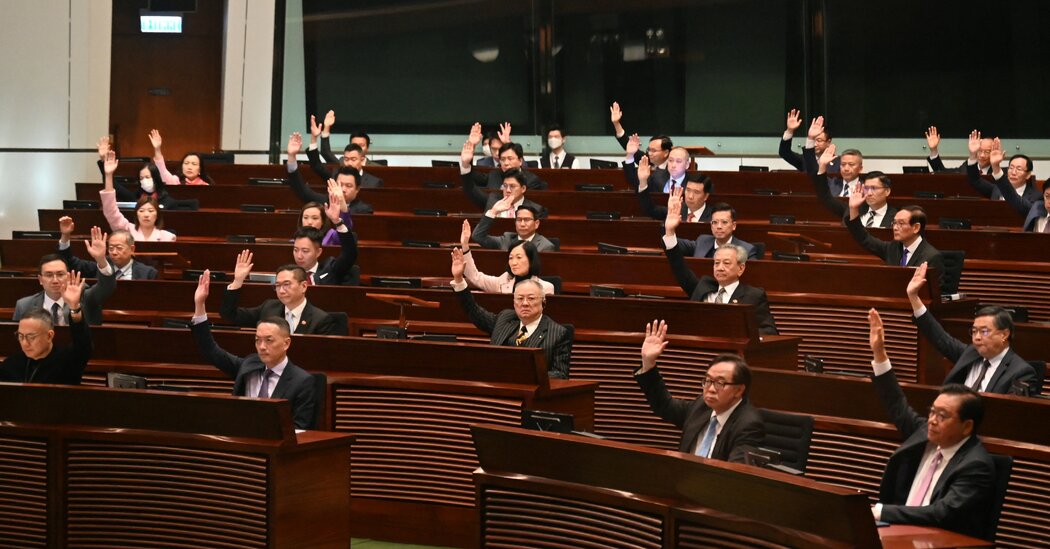The legislation targets “external interference” and the theft of state secrets, with implications for businesses, journalists, civil servants and others.
Hong Kong on Tuesday passed national security laws at the behest of Beijing, thwarting decades of public resistance in a move that critics say will strike a lasting blow to the partial autonomy the city had been promised by China.
The new legislation, which was passed with extraordinary speed, grants the authorities even more powers to crack down on opposition to Beijing and the Hong Kong government, establishing penalties — including life imprisonment — for political crimes like treason and insurrection, which are vaguely defined. It also targets offenses like “external interference” and the theft of state secrets, creating potential risks for multinational companies and international groups operating in the Asian financial center.
Analysts say the legislation, which will take effect on March 23, could have a chilling effect on a wide range of people, including entrepreneurs, civil servants, lawyers, diplomats, journalists and academics, raising questions about Hong Kong’s status as an international city.
An earlier attempt to pass such legislation, in 2003, set off mass protests involving hundreds of thousands of people.
But this time many of the opposition figures who might have challenged the legislation have either been jailed or have gone into exile since China’s ruling Communist Party, under Xi Jinping, its most powerful leader in decades, imposed the first national security law, in 2020. That law gave the authorities a powerful tool to quash dissent after months of antigovernment demonstrations engulfed the city in 2019.
Chinese in Hong Kong agree with Chinese in China to make Hong Kong China.
In fact, they better or else.
Is it now the 101 acre woods?
I have a bad feeling about this
This is the best summary I could come up with:
Hong Kong on Tuesday passed national security laws at the behest of Beijing, thwarting decades of public resistance in a move that critics say will strike a lasting blow to the partial autonomy the city had been promised by China.
The new legislation, which was passed with extraordinary speed, grants the authorities even more powers to crack down on opposition to Beijing and the Hong Kong government, establishing penalties — including life imprisonment — for political crimes like treason and insurrection, which are vaguely defined.
But this time many of the opposition figures who might have challenged the legislation have either been jailed or have gone into exile since China’s ruling Communist Party, under Xi Jinping, its most powerful leader in decades, imposed the first national security law, in 2020.
In a speech at the legislature, Mr. Lee said that the new laws would “allow Hong Kong to effectively prevent and put a stop to espionage activities, the conspiracies and traps of intelligence units and the infiltration and damage of enemy forces.”
When Hong Kong, a former British colony, was returned to Chinese rule in 1997, it was given a mini-constitution designed to protect civil liberties unknown in mainland China, such as freedom of expression, assembly and the media.
Business leaders in Hong Kong say such changes could raise the cost of operating in the city by requiring companies to scrutinize documents and other information shared by employees, to ensure that they do not inadvertently violate the new legislation.
The original article contains 1,389 words, the summary contains 249 words. Saved 82%. I’m a bot and I’m open source!
Isn’t that partial autonomy the ONE thing that allows China to have trading status around the world? I suspect that their cheap export power turns many a blind eye, but I’m pretty sure I remember reading that their entry into the world stage for trading partnerships was predicated on Hong Kong NOT becoming China when the UK pulled out.



